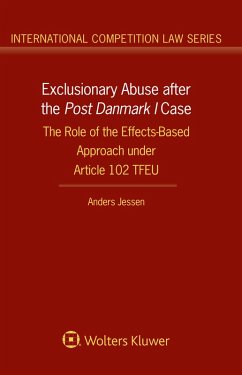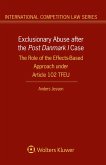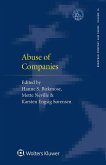Article 102 TFEU constitutes that a firm holding a dominant position in its market is not allowed to abuse this dominant market power through unilateral conduct. Although this provision is clearly of great importance in curbing the adverse effects of market power, it remains far from clear when dominant firms exclusionary conduct is in breach of this provision. This book presents an in-depth analysis of the limited case law, soft law, and theory in the field of law and economics on the matter, confronting the complex issues raised by the effects-based approach used to determine whether competition law has been breached, and clarifying how this approach can best be applied in future cases.Among the issues and topics covered are the following:- relevant case law, notably Post Danmark I, Tomra, and Intel;- analyses and discussions of when and how to apply the effect-based approach, including by object restrictions;- economic theories in the context of Article 102 TFEU; and- predation versus exclusion.While the book is grounded in the legal framework it also applies a law and economics based approach with the aim of supporting the legal arguments and conclusions, and thereby providing more robust arguments for the reached conclusions.As the first study to offer a much-needed clarification of the assessment relating to exclusionary conduct within Article 102 TFEU after the Post Danmark I case, this book provides suggestions on how to structure the approach, thus creating greater legal certainty for dominant firms (and their competitors) and providing a sound basis for both practice and research in this area. It is sure to be read and studied widely by practitioners and academics concerned with the application of Article 102 TFEU.
Dieser Download kann aus rechtlichen Gründen nur mit Rechnungsadresse in A, B, BG, CY, CZ, D, DK, EW, E, FIN, F, GR, HR, H, IRL, I, LT, L, LR, M, NL, PL, P, R, S, SLO, SK ausgeliefert werden.









